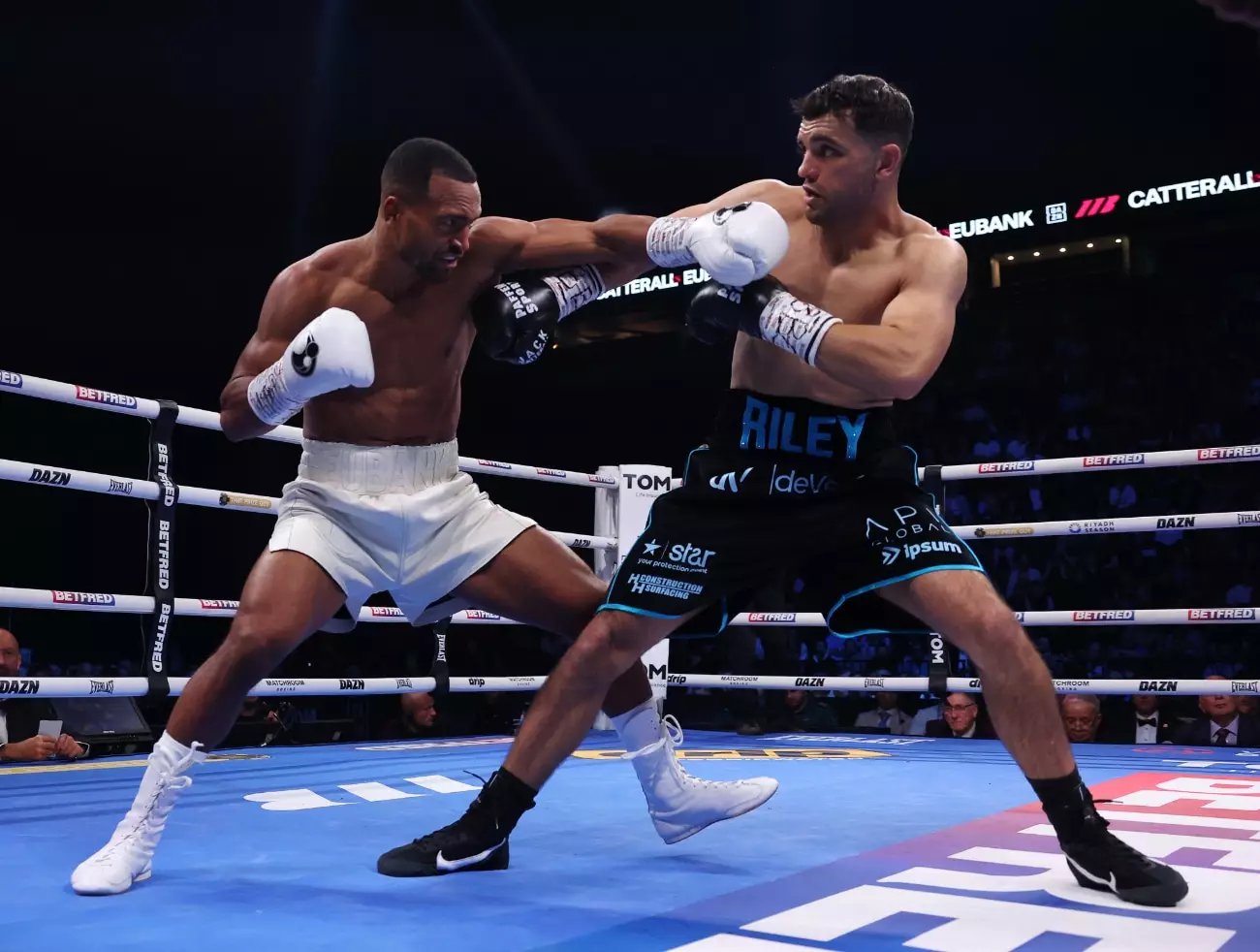Jack Catterall’s recent victory over Harlem Eubank marks a notable milestone in his career—a win that, on paper, boosts his standings within the competitive welterweight division. Yet, beneath this triumph lies a tapestry riddled with questions about his true potential and consistency. Catterall, with a record of 31 wins, 2 losses, and 13 knockouts, is a fighter who often displays flashes of skill but struggles to maintain the high stakes required for elite status. His victory, sealed by a technical decision following a cut caused by an accidental clash of heads, underscores the fragility of his momentum and raises doubts about whether he’s truly ascending or merely surviving in a brutal division.
Catterall’s performance in this bout was underwhelming at best. His movements appeared sluggish, and his punches lacked the power necessary to intimidate or discourage Eubank. Despite having a natural size and skill advantage, he failed to capitalize on his opportunities—an inconsistency that has long plagued his career. His retreating strategy and passive approach drew inevitable criticism, suggesting a fighter uncharacteristically tentative when faced with adversity. While some may argue that the cut circumstance was unlucky, it serves as a broader reflection on his inability to impose his will against formidable opposition. His journey is emblematic of a boxer who has yet to fully harness his potential, consistently teetering on the edge of greatness without ever truly crossing the threshold.
Questionable Fight Tactics and Lack of Dominance
The fight itself was a spectacle of frustration—a chaotic mix of clinches, missed punches, and wrestling rather than the high-energy exchange fans might crave. Eubank, notably, failed to leverage his power, resorting instead to messy clinches and a hesitant style that failed to threaten Catterall’s defenses. For Catterall, this style was a gift, yet one he couldn’t capitalize on because his own offense was subdued. A testament to his limitations emerged when observers noted how he looked slower and less punchy; a stark contrast from the confident, assertive fighter many anticipated entering the ring.
This fight was revealing beyond the poor performance. It exposed Catterall’s ongoing struggle to impose dominance—a trait fundamental for a contender. His passive retreating tactics and lack of aggression, especially when faced with an opponent who was visibly pacing himself, highlight a need for psychological resilience. It’s a pattern of indecision—a recurring theme in his bouts—that casts doubt on his capacity to adapt under pressure. Effective fighters don’t merely avoid mistakes; they control the tempo, dictate the fight’s rhythm, and impose their will. Catterall, unfortunately, appears stuck in a limbo where hesitation often outshines aggression. His current form and fight style risk making him a stepping stone rather than a legitimate threat in the title hunt.
Future Pathways: A Frank Reality Check
Post-fight, major figures like promoter Eddie Hearn laid out a clear trajectory: Catterall should chase a world title shot rather than revisit Eubank—who is seen more as a stepping stone than a true contender. The plan is to pursue the IBF title, potentially facing the winner of the Lewis Crocker versus Paddy Donovan bout, both of whom are fringe-level fighters. While this path might seem promising, it also underscores a certain reality: Catterall’s skill set currently fits a middle ground, not quite powerful enough to dominate top-tier opponents, yet not polished enough to consistently beat those just below the elite level.
A deeper issue is whether Catterall’s current strategy aligns with his potential. Moving forward, his team must confront the core question: can he evolve into a legitimate titleholder? While some posit a chance against the upcoming challengers, others see a fighter still in development, struggling with consistency and mental toughness. Realistically, without significant improvements, Catterall’s future may be confined to fights that enhance his record but don’t elevate him to the pantheon of division legends. Efforts to avoid facing tougher opponents, like WBO champion Brian Norman Jr., highlight an underlying apprehension—an understandable but risky approach that could hamper his growth and credibility.
The Broader Perspective: Talent, Tempo, and Survival
Catterall’s story is emblematic of many fighters caught between promise and harsh reality. His technical skills are undeniable; however, the mental and tactical components seem perpetually undercooked. The sport demands more than just talent—it demands adaptability, resilience, and relentless drive. The fight against Eubank revealed vulnerabilities that could be exploited by fighters with real power and tactical intelligence.
Ultimately, Jack Catterall exemplifies a fighter who is still searching for his identity in the sport. His potential remains, but so does his inconsistency. The question is whether he can make the necessary adjustments, sharpen his focus, and develop a more aggressive, confident mindset. Without these, his storied career risks plateauing, leaving him as a familiar name rather than a legend in the making. His next few fights will be crucial in defining whether he transitions from a talented contender to a true champion or remains a curious case of untapped potential.

